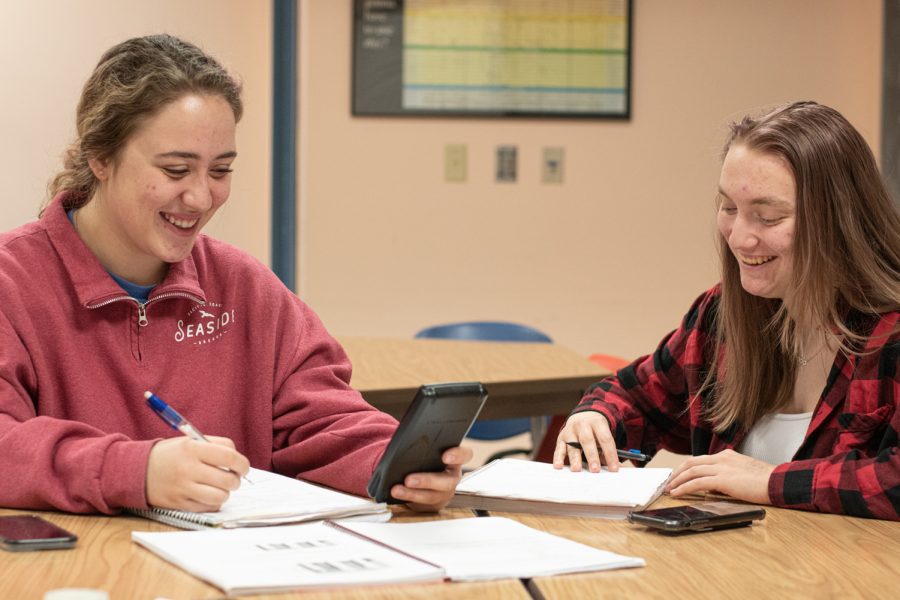Faculty reflect on updated masking rules, limitations in classrooms
Faculty cannot request students wear masks in class, cannot announce presence of COVID-19 in class
Since spring break, students have not been required to wear masks in classrooms — and faculty members cannot request that they do so.
March 30, 2022
The WSU Provost’s Office updated classroom COVID-19 policies March 16 to maintain a uniform policy across campus, but student participation and ventilation in labs are still concerns.
Instructors should not make any announcement to a class about the presence of a student who has tested positive for COVID-19, according to the Office of the Provost website.
Doug Call, WSU Faculty Senate chair, said the university implemented this rule to maintain students’ privacy, much like the Health Insurance Portability and Accountability Act protects individuals’ health information.
“Some faculty would like to have more control, and others are fine the way it is,” Call said. “The reality is that this is just the way that it is for now. We’ll have to adapt accordingly as things change – if they do change.”
Faculty are also not allowed to require or request that students wear masks in classrooms, with the exception of clinical practicum courses that required masks and personal protective equipment before the pandemic, according to the Office of the Provost website.
Call said the university cannot ask students to wear masks in order to stay consistent with Washington state’s mask mandates and to prevent liability issues for faculty and the university.
As an associate professor who specializes in infectious diseases, Call said he sympathizes with students and faculty who are cautious, but having a variable approach to mask requirements across campus would be an issue.
“You can imagine that a faculty member in class decided to require [wearing masks] and students refused to do it — what are you going to do about it?” he said. “Would you apply a punitive response, in which case you’re penalizing the student for something that actually isn’t a part of the university policy? It’s not the Wild West we have to be consistent on this one.”
Paul Buckley, associate professor in the Department of Chemistry, said he understands the university is following government guidelines, but close contact areas and a lack of ventilation in labs is a concern for teaching assistants and instructors.
“Honestly, I wish we could make an exception for labs,” Buckley said. “Mostly, our facilities are kind of old. If our labs had better air ventilation, then I’d rethink it.”
WSU increased the outdoor air contribution in buildings with forced air ventilation systems to reduce the spread of infection, according to the Office of the Provost website.
In January, Call said WSU traced about 600 COVID-19 cases and found that only 5% of cases were attributed to a combination of time spent in classrooms and social and living situations. If students feel they need protection in Pullman’s endemic stage, they are welcome to wear masks, he said.
The updated classroom policies also recommend that instructors reasonably accommodate students who are absent due to illness, according to the Office of the Provost website. If students appear ill, instructors can ask them to leave the classroom.
For chemistry labs, Buckley allows students to complete an alternative lab if they contract COVID-19 and notify him beforehand.
Buckley said he is not an advocate of live streaming classes on Panopto, but it allows students to participate in class discussions and earn points remotely. Buckley would rather students participate in person in order to collaborate with other students and himself.
“Maybe I’m officially a curmudgeon now, but I don’t think rolling out of bed and just turning on the computer is the best way to get an education, especially because I like to do the active learning things,” he said.
Call said the university is able to have conversations with students who feel like they are being penalized for an illness they cannot control.
“We have to just roll with the punches,” Call said. “We need students to succeed as much as the students need to succeed. Their success is our success, right?”











